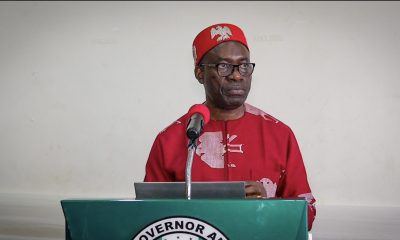The Chairman of Association of Licensed Telecoms Companies of Nigeria (ALTON), Gbenga Adebayo, wants social media platforms like Facebook and WhatsApp to pay levy because Nigerians no longer use SMS.
According to Adebayo, network providers are being charged for services that are becoming redundant in the era of On-The-Top services. OTT services are Facebook, Whatsapp and Youtube.
He said the regulator charges the telecommunications companies annual operating levy for SMS and data services, whereas, the main beneficiaries (OTT platforms) of the services offered by the network providers do not pay levy for their service.
Adebayo said there’s a need for the telecommunications regulator to review its regulations, stating that licenses should now be awarded based on technology and not services.
He argued that platforms like Whatsapp, Facebook and Youtube have social and economic implication.
While reacting to the implication of the OTT services, he said, “Those kinds of services have social implication, economic implication, security implication and if they are not licensed, that means they are not regulated and if they are not regulated, there is no limit or scope to what they can do. And no control over their services and content they can provide.
“We are, therefore, saying there is a need for the regulator to begin to look away from the neutrality of technology and technology certification and regulation than just licensing for service not only because of the social security implication but also because of the economic implication for the operators.
“Today, more people send WhatsApp messages, they send messages over the social media platforms than they do on the conventional SMS platform.
“Operators have been licensed to provide voice, SMS and data services for which they are licensed and being charged annual operating levy. OTT doesn’t have such and there is even loss of revenue to the regulator of the country too because they are not paying for rendering those services.
“That is why we are saying that our regulator must begin to look away from technology neutrality,” Adebayo concluded.

 Comments and Issues1 week ago
Comments and Issues1 week ago
 Health7 days ago
Health7 days ago
 Comments and Issues1 week ago
Comments and Issues1 week ago
 Education1 week ago
Education1 week ago
 Football7 days ago
Football7 days ago
 Aviation1 week ago
Aviation1 week ago
 News4 days ago
News4 days ago
 Business6 days ago
Business6 days ago











